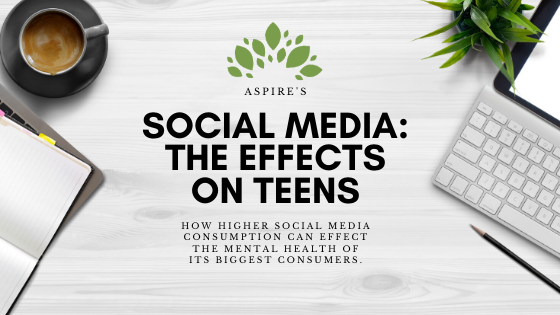Curiously, the dominance of smartphone and social media use occurred at the same time there was a drastic increase in teen depression. According to the survey on National Drug Use and Health, the incidence of major depression among ages 12-17 increased over 52 percent from 2005 to 2017. Among ages 18 to 25 it increased by 63 percent from 2009 to 2017. Alarmingly, the rate of these young adults contemplating suicide went up 71 percent from 2008 to 2017.
Other triggers that would be expected to cause such a drastic increase in depression have been ruled out, as they have decreased over that time period. For example, drug and alcohol use among teens has decreased over that same time period. Finances aren’t likely to blame either, as unemployment has decreased since that time period.
Social media and smartphone use have effects that can mirror depressive characteristics. For example, lack of sleep goes hand in hand with depression, and smartphone use at bedtime, a popular teen habit, can cause inadequate sleep. A combination of the blue light emitted by mobile screens that trick the brain into thinking it is morning, and the engaging of the brain in concentrating on the interaction on the phone can cause inadequate sleep.
Another major drawback of social media is the lack of face-to-face social interaction which studies say impacts happiness. Teens who have grown up communicating through text messages and social media are sometimes awkward with face-to-face conversations. They do not learn the critical components of social interaction such as reading body language and understanding vocal tonality. This creates a fear and feelings of inadequacy as they begin to enter the working world and college which still primarily use face-to-face communication.
Additionally, social media can lead to a distorted reality. A key component of mental health is personal friendships, and social media can create a false sense of connection with others. Those 400 “friends” don’t represent the personal connections needed for positive mental health interactions. People also tend to post positive things about themselves such as attending social events and reaching milestones, not negative interactions. Teens scroll through their “friends” accounts and think they have a “perfect” life full of nothing but happy and exciting things, making them feel left out and inadequate.
Social media also has an addictive quality, due to the ability of their “followers” to approve or disapprove of their posts. A like or thumbs up to something they have posted can trigger a release of dopamine, a chemical that creates the desire to repeat the behavior for more approval. This creates a cycle where they want to continually post and watch for reactions. This can impact their physical interaction with friends if they are focused on capturing the moment for social media documentation, rather than being in the moment and embracing the joy. Anxiety increases when they are trying to capture that “perfect” moment to keep up with their “followers”.
Cyberbullying is also a very real and extremely damaging aspect of social media. Bullying has always been a part of teenage behavior, but the quick touch of a button that communicates with so many people takes bullying to a whole new level. Teens can spread secrets and false information online with little effort and within hours a teenager’s reputation can be destroyed. This social fallout can push a teen to commit suicide.
If your teen is buried in their phone and you want to make sure they are being influenced by your parenting verses the internet, here are some tips:
- Limit the time in front of the screen to two hours per day (not including homework)
- Put the phone away one hour before bed
- No cell phones at dinner encourages conversation and quality time together
- Install an app that will track and control the amount of time on the phone and social media
- Help them to understand that no one is perfect and that others will always try to paint themselves in the best light possible
- Schedule one-on-one time with your teens for face-to-face interaction and open communication
The teen counselors at Aspire Counseling Services can help your teen to develop healthy social media habits and self-confidence in their face-to-face social interactions. If you feel your teen is struggling with depression or anxiety, contact Aspire Counseling Services today.

Planting Seeds, Saving Lives
Copyright © 2026 Aspire Counseling Services® | Privacy Practices | Terms and Conditions | Powered & Designed by Citryn, LLC

Planting Seeds, Saving Lives.
Available 24/7 (888) 585-7373
FOLLOW US ON SOCIAL MEDIA
MENU
HOME
OUR SERVICES
LOCATIONS
STAFF
ABOUT ACS
BLOGS
RESOURCES
CONTACT US
LOCATIONS
ARROYO GRANDE
ACS BAKERSFIELD
ABH BAKERSFIELD
FRESNO
SIMI VALLEY
Privacy Practices
Copyright © 2020 Aspire Counseling Services®
Powered & Designed by Citryn, LLC

